October 15, 2024
Laura Young on fossil fuels, chronic pollution, and the fight for cleaner seas
BY: Sophie Fresson
Topics: Oil and Gas
Laura Young, aka @lesswastelaura, is an environmental scientist and campaigner. Her work is focused on fossil fuels, the climate crisis, and plastics, where she uses her activism to help shift policy and inspire a greener way of living. Laura shared her thoughts with us on the oil and gas industry for our new report on chronic oil pollution in UK seas, Sea Slick, and related film, Spill. If this article makes you want to join the fight for our seas, you can take action here.
Q: Tell us about where you live in Scotland.
Living in Dundee is really special because it’s a coastal estuary city, so from many places you can see the beautiful River Tay flowing right out into the ocean. You also see the oil rigs when they’re brought in for maintenance, repairs and decommissioning. It’s a strong reminder of how much the fossil fuel industry has shaped the local economy in the past and where we need to see the just transition to renewables.
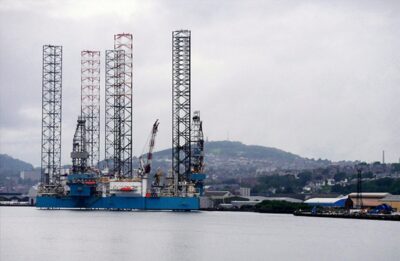
Q: What inspired you to become an activist?
Studying geography and then environmental science helped me understand both the beauty of the natural world and how we’re damaging it. Whether it’s plastic pollution, oil spills or resource overuse, we’re not treating the planet well, and that drove me to take action. Activism felt like a natural way to push for change – whether through sustainable energy, reducing waste, or protecting nature. It’s about encouraging everyone to play their part in a more sustainable future.
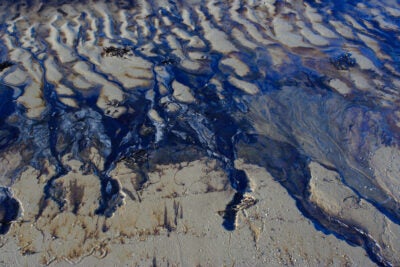
Q: You mentioned fossil fuels and oil spills in the marine environment. What are the impacts of this pollution?
Oil spills get a lot of attention, but what many don’t realise is the constant leaking of fossil fuels into the ocean, often unnoticed. This chronic oil pollution can be incredibly harmful to marine life, with long-term effects on ecosystems. While litter on beaches is more visible, this type of diluted pollution adds another layer of threat that is harder to detect but just as dangerous for wildlife and people using these waters.
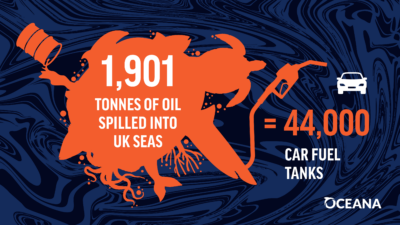
Q: As an advocate for a just transition to renewable energy, what changes would you like to see?
The just transition is about moving away from fossil fuels to clean energy while supporting the workers and communities affected. In Dundee, we’re seeing both – the remnants of the oil and gas industry alongside the development of offshore wind turbines. It’s heartening to see skilled workers from one industry transferring to the other. The focus needs to be on transparency and careful planning so we can move quickly, but in a way that’s fair for everyone involved.
Q: Why do you feel so passionately about a just transition to renewable energy?
One key example of why I’m passionate about the just transition is personal – my family has a background in coal mining. So I understand the deep connection people have to the fossil fuel industry. That’s why the just transition is so important. It’s not just about ending fossil fuels immediately, but about supporting workers in shifting to clean energy. There’s real potential for a green future, but people need a clear, supportive plan to make it happen. Despite the uncertainty, many in the industry are eager be part of this change, if they are supported in doing so.
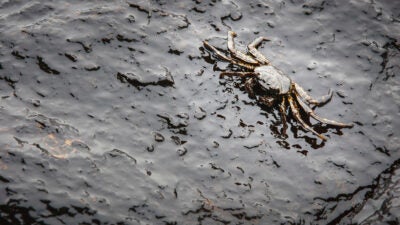
Q: What do you want to see happen now that chronic pollution has come to light?
Two key things: transparency and accountability. We need to fully understand what’s happening beneath the surface – how many spills are occurring, the true volume of oil leaking into the ocean, and the impact on wildlife. Clear policies and procedures must be in place, and the industry needs to show how it plans to stop these spills. Most importantly, the government must hold businesses accountable, ensuring the consequences match the devastating damage their chronic pollution is causing.
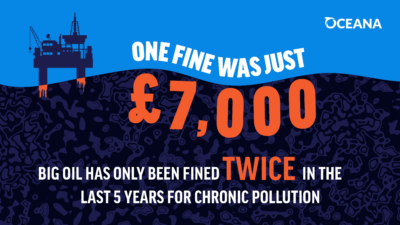
Q: What gives you hope and keeps you motivated despite the challenges?
I find a lot of hope in seeing the solutions that are already out there and how many people are involved in tackling environmental issues, especially at the grassroots level. Dundee, for example, has an incredible climate hub and a network of changemakers driving action. And it’s not just Dundee – many communities are embracing sustainable solutions. While we’re uncovering environmental problems, we’re also making progress toward change.
View this post on Instagram
